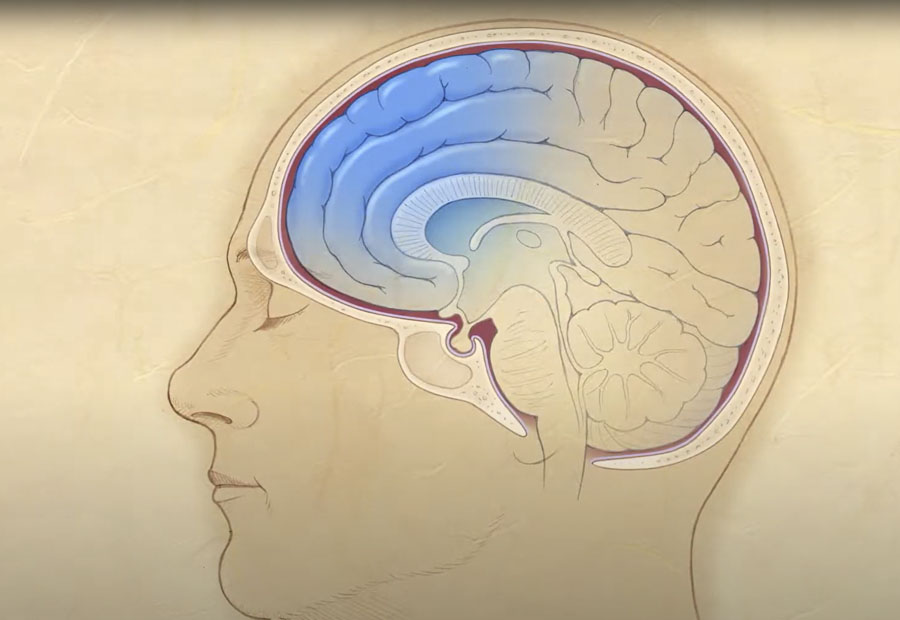Glioblastoma (Glioblastoma Multiforme)
A glioblastoma is a rapidly growing, cancerous tumor that forms in the brain or along the spine.
At Stanford Health Care, we are a global referral center for glioblastoma offering novel approaches to manage these aggressive tumors and to enhance your quality of life.
Overview
What is a glioblastoma (glioblastoma multiforme)?
A glioblastoma is a cancerous (malignant) tumor that develops in the brain or spinal cord. Glioblastomas form in cells called astrocytes, which support nerve cells. Glioblastomas usually begin as a grade 4 tumor, which means it’s the fastest growing of all brain tumors. Cancer cells multiply quickly in the brain because of its dense supply of blood vessels.
Treatment focuses on slowing the progression of the cancer and managing symptoms to maintain your quality of life. Treatment options may include surgery, radiation therapy, medication therapy, or a combination of these therapies. We also offer experimental therapies through clinical trials.
Connect to Care
Let us help find personalized care options for you and your family.
Understanding Glioblastoma
Glioblastoma Symptoms
Glioblastoma symptoms can mimic those of other, less serious conditions. You also may experience a variety of glioblastoma symptoms, which include:
- Blurred vision, double vision, or loss of peripheral (side) vision
- Confusion or decline in cognitive (thinking) functions such as memory, understanding, judgment, and language
- Changes in personality or mood
- Difficulty with balance or speech
- Nausea and vomiting
- Seizures
- Urinary incontinence
Glioblastoma Risk Factors
For most people, the cause of glioblastoma isn’t known. In rare cases, people with genetic cancer disorders, such as Li-Fraumeni syndrome (LFS), can develop glioblastoma.
Some factors can also increase the risk of having glioblastoma, including:
- Male gender
- Older age
- Previous radiation therapy
Diagnostic Tests for Glioblastoma
Medical History and Neurological Exam
To accurately diagnose a glioblastoma, your doctor asks you about your medical and family history and performs a neurological exam. During the exam, your doctor identifies the part of your brain the tumor is affecting by checking your:
- Balance and coordination
- Hearing and vision
- Strength and reflexes
If your imaging or other screening tests show that you may have brain tumors, you will need a biopsy. This test takes a tiny sample of cells from abnormal tissues.
Genetic testing is a medical test that identifies changes in genes, chromosomes, or proteins. For brain tumors, genetic testing can show whether you have inherited mutations in genes related to the disease.
Before and during treatment, your doctor will ask you to have your blood drawn and tested at a lab. Blood tests can provide a variety of information, helping to establish your diagnosis and plan your course of brain tumors treatment.
In addition, your doctor may order imaging tests to confirm the diagnosis. Magnetic resonance imaging (MRI) is most commonly used to help diagnose a glioblastoma. An MRI uses radio waves and powerful magnets to create pictures of the brain.
Several types of MRI can help provide a precise diagnosis, including:
- Functional MRI: This type measures brain activity by detecting changes in blood flow.
- Perfusion MRI: We use this imaging to identify parts of the brain that have less blood flow, which may mean that a tumor is blocking the path.
- Tractography: This technology creates detailed images of white matter tracts, which carry electrical signals and sensory information through the central nervous system. Our surgeons use tractography during surgery to navigate around critical pathways while removing the tumor.
If you have an implanted medical device, such as a pacemaker, and can’t have an MRI, you might have a CT scan (computed tomography scan). A CT scan compiles multiple X-rays to create 3D images.
Glioblastoma
Our neurology and cancer specialists use advanced techniques to treat glioblastomas (GBM) and manage glioblastoma symptoms for a greater quality of life.
glioblastoma multiforme
GBM
glioblastoma
brain tumor
spine tumor
glioblastoma treatment
glioblastoma symptoms
causes of glioblastoma
glioblastoma diagnosis
glioma
glioma treatment
glioblastoma treatments
glioma treatments



